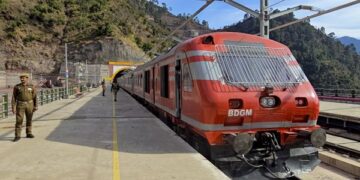By: Samara Ashrat
India and Bangladesh are two prominent countries in the South Asian region. Both countries have a special place in each other’s foreign policy matrix. Not only that, the relations between these countries are rooted in tradition, culture, language, and mutual values. This fact is undeniable that the reciprocal relations between these two countries are crucial for each other’s economy and security. Both countries need each other to enhance their position in this globalized world. For that, both of the countries need to share a vast area of cooperation. If we imagine an overall picture of India-Bangladesh relations, the graph is full of ups and downs. While there have been a lot of areas of cooperation, on the other hand some issues are creating discomfort between the neighbors.
India-Bangladesh Cooperation
Being each other’s closest neighbors, India and Bangladesh have multidimensional and expanding ties. The cooperation between the two countries ranges across all fields including trade and commerce, power and energy, transport and connectivity, science and technology, defense and security, maritime affairs, climate change, and sustainable development among others. Bangladesh is an important partner in India’s flagship ‘Neighbourhood First’ policy.
During the last visit of Prime Minister Sheikh Hasina’s visit to India, the two countries further boosted their partnership by signing seven Memorandums of Understanding (MoU) in the areas of water resources, capacity building, railway, science, and technology. In the field of trade, for instance, India is the second-largest trading partner of Bangladesh, with Bangladesh being the fourth-largest export destination for India. Bilateral trade has seen a consistent and rapid rise, growing from USD 9.69 billion in FY 2020-21 to USD 16.15 billion in FY 2021-22, despite the adverse effect on the economy caused by the COVID-19 pandemic. To cement the relationship further, India only invited Bangladesh to the G20 summit among all its neighbors in South Asia. Moreover, Bangladesh has already started the negotiation of the Comprehensive Economic Partnership Agreement with India.
India For Bangladesh
It is undeniable that India has done a lot for the development of Bangladesh. After a long negotiation, India has given Bangladesh an electricity corridor to import hydropower from Nepal. Not only that, in the face of strong demands from Bangladesh, India has agreed to negotiate and modify the terms of Indian loans for the first time. One of the proposals was to waive the obligation to purchase 75% of goods from India under the Indian Line of Credit (LoC) scheme. India has withdrawn its objections to the construction of the new Kasba railway station as well as the immigration building of police in Akhaura. Not only that, India is now facilitating the shipment of Russian nuclear power plant materials via an overland route to Bangladesh. Three more border haats will be opened in the Tripura-Bangladesh border to facilitate trade between the two countries. Narendra Modi and other leaders of India have been acknowledging Bangladesh as an important partner of the Northeast.
What’s blocking the view?
The two countries have several pending issues with the most crucial being the sharing of waters in common rivers, including the Teesta River, which flows through India, and the border killing issue. After decades of negotiation, India has yet to sign the Teesta water-sharing pact or stop the killing of Bangladeshi citizens by Indian border guards. Bangladesh is naturally a downstream country. It wants India to share more water from the Teesta. But India has so far been unable to strike a deal on the matter, likely due to strong opposition from West Bengal state. Not only that, India’s Citizenship (Amendment) Act (CAA) and National Register of Citizens (NRC) have created a negative impression among Bangladeshis. The latest example of the discomfort is an energy deal with the Adani group where Washington Post and other news reports suggested that Bangladesh caved into a deal for paying more than it should have.
Blockade needed to remove soon
Brushing these issues under the carpet would be unwise for the long-term health of the relationship. Given the circumstances, it cannot be emphasized enough how important it is for Bangladesh to find a sustainable solution to the long-drawn-out Teesta water-sharing saga with India. Despite decades of negotiations and numerous promises from our Indian partners, the Teesta water-sharing agreement between Bangladesh and India is nowhere near being settled. So far, India benefitted the most of the deals that have been signed between India and Bangladesh. Be it transit & trans-shipment corridor from Bangladesh or any other bilateral trade agreements; India has always been a gainer. Teesta water sharing issue can be an area where India can selflessly make Bangladesh the gainer to uphold the epitome of true friendship.
On the other hand, the Adani issue is still an area of discomfort between India and Bangladesh. The Indian government can personally see the matter and pressure the Adani group to improvise the price of electricity to a convenient price for Bangladesh. To resolve the issues India and Bangladesh should reconciliate the issues based on cooperation, collaboration, and consolidation.
The writer is PhD fellow, International Relations, University of Bucharest




